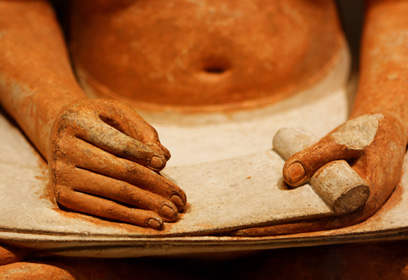
Photograph: François Spilliaert
Because You Asked draws from fifteen years of Q&As after literary readings at Whitman College in Walla Walla, Washington. A varied collection of essays, lists, letters, and interviews in which writers address and respond to their audiences about the writing life and craft, the volume presents post-reading patter blown open. It gathers pieces from eighty-five writers, including major figures such as Mark Strand, Lydia Davis, Charles Simic, and Galway Kinnell, as well as a variety of younger writers, among them Carmen Giménez Smith, Sarah Vap, Oliver de la Paz, and Camille Dungy.
Q&As can be revelatory or awkward; they are always unpredictable and often dreaded. A writer must try, as Mark Doty says, to “be spontaneously articulate, reasonably insightful, funny, and perhaps entertainingly quirky as well.” Taking into account that many writers have an impulse to retreat from Q&As, to flee without the blanket of pre-scripted language, Katrina Roberts’s introduction argues that the compilation gathers their remarks “not to suggest a writer necessarily will have much desire to decipher ‘meaning’ beyond what she’s already said,” but that the Q&A can “become a dramatic postscript to our readings, a rousing confrontation, a symbiotic celebration.”
The shifting and obscure rules of writing are as varied as the works they shape.
The tone of the Q&A is markedly different from that of the reading itself, the formal presentation of the text. Many readings are punctuated by introductory chitchat (“I wrote this while I was babysitting my neighbor’s cat”), and some proceed with the sing-songy lavender voicethat rises at the end of every phrase. The Q&A marks the end of those conventions. Because You Asked invites the reader to listen in and observe that post-reading space. Since the anthology derived from a reading series intended for students, the pieces are mostly pedagogical in nature and intent. Beginners are eager to uncover the secrets of success—techniques that, once and for all, will make them into writers or help them find a voice. “Do you type or write with a pen?” many ask. The sheer range of responses to such questions shows that the shifting and obscure rules of writing are as varied as the works they shape.
Most anthologies of writing craft offer exercises (Robin Behn’s The Practice of Poetry), discussions of form (David Lehman’s Ecstatic Occasions, Expedient Forms), combinations of book reviews and close reading (Stephen Dobyns’s Best Words, Best Order), or instructions in clarity of technique (William Zinsser’s On Writing Well). Because You Asked is either all or none of these. The questions and answers address technique, gender, identity, form, inspiration, truth, and criticism. Some pieces are meditative, others prescriptive; some are autobiographical, while others are about particular texts. Most of the writers included wrote new pieces for the collection. There are lyric essays, answers to questions posed by audience members, explorations about God, and notes on technique, among other forms.
Because You Asked will be useful for graduate students looking to expand their frames of reference, for seasoned writers looking for insights into readings by other writers they may not have had opportunities to hear in person, and for writers trying to get the gears moving again after a winter, or a year, or writer’s block. Kazim Ali’s description of a party at AWP and the late writer Craig Arnold is profound and mysterious. Marvin Bell’s advice should be required reading: “Use workshops for community, but not for criticism. Avoid theories, flatterers and debt. Do not bow to insult: it always comes from one’s inferiors.” Lydia Davis talks about revision to improve an ending: she describes how she changed one sentence—“Yet my confusion must be this: her capacity for betrayal is still young and fresh, even though her body is old”—by revising it as “Yet my confusion must be this: though her body is old, her capacity for betrayal is still young and fresh.”
The strongest pieces ask readers to rethink the very nature of their questions. Paisley Rekdal’s essay on the difficulties of navigating racial politics in poetry cuts to the front of one of the major questions in contemporary American letters. Rekdal describes what, if anything, makes a poem biracial. She considers that we are all fragmented, or “in between” identities. She says that the “I” in her poems may not be a cohesive self. She goes on to wonder how poems and beliefs put pressure on catharsis and identification for the writers of such poems. Dorianne Laux’s piece is a long list of Facebook responses to a poem she published in 1994 that used the words “retarded child.” It shows how the reader is responsible for at least half of the meaning of a poem. Laux teaches both how easy it is to write a poem, and how difficult it is to write a poem.
Some pieces offer insightful but predictable bits of wisdom: Donald Hall suggests to “read everybody who wrote in the seventeenth century. Read contemporary stuff too, but remember that most of it is going to look fatuous in fifty years.” Richard Wilbur simply says that “a pencil-written word is tentative and erasable, and has none of the fatal decisiveness of words punched out on a keyboard.” Galway Kinnell says that he doesn’t care which particular angle readers take when they approach his poetry: “I think to me a poem is just half a thing until it’s read—then it’s a whole thing.” Mark Strand, in what may be one of the last poems he wrote, offers a “Diary”: “Each night with nothing more to do I stare / Into your pages blank as air; / How pure, how blameless I appear— / A silent self in its more silent mirror.” Other pieces, such as Garrett Hongo’s on his sources, are master classes not only on inspiration and landscape, but on how to use materials of place and history in poetry. Merrill Feitell describes writing everyday on the F train to Coney Island and getting stuck rewriting the same scene over and over. She shows us how even experienced writers are still, at the level of daily effort, amateurs.








